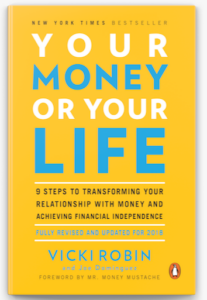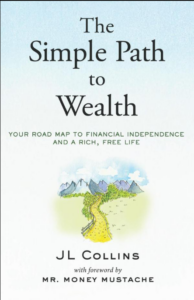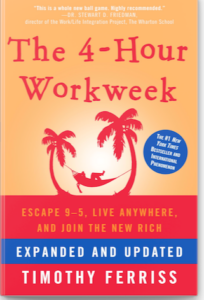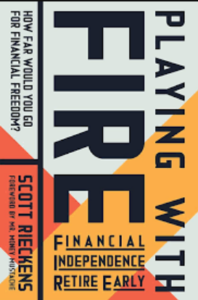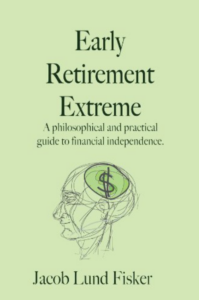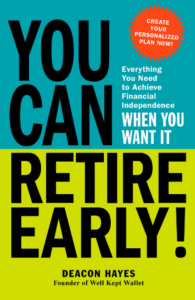Best Books on FIRE to Read
About Megan
Megan Brame is a five-time award-winning content strategist whose content centers around helping others develop a better understanding of finance and marketing. Her website is https://bramecreative.com
Read full bio
Best books on Financial Independence, Retire Early
If you’re done dealing with the daily work grind, there’s an alternative you should consider. It’s called “Financial Independence, Retiring Early” (FIRE) movement and is all about getting yourself out of the workforce to live a life of freedom as early as possible. If FIRE sounds like something you’re ready to shoot for, here are our picks for the top books about how to FIRE you need to know.
“Your Money or Your Life” by Vicki Robin & Joe Dominguez
Why we love it: While it’s not FIRE-specific, this is a must-read. This book takes a cold, hard look at the way you spend money, turning it from cash into time. It uses the average hourly rate you earn at your job and uses that as a lens to see how much your expenses are really costing you, timewise. Is that pair of shoes really worth 3 hours of work? It’s an eye-opening book, for sure. Tip – Check the section where it goes into how much money you spend just to work!
Read now: Your Money or Your Life
“The Simple Path to Wealth” by JL Collins
Why we love it: Want to learn how to invest but just get overwhelmed too easily? This guide is for you. JL Collins does a thorough, “idiot-proof” dive into how to use the stock market to gain financial independence through simple, easy-to-follow steps.
Read now: The Simple Path to Wealth
“The 4-Hour Workweek” by Tim Ferriss
Why we love it: A guide to developing an entrepreneurial mindset that might not appeal to you, until you see it for what it is. Tim Ferriss removes the stigma around earning money and gives you permission to prioritize your time over your hustle. Learn how to change your mindset so that you can enjoy life without feeling the need to be in the grind. You’ll be surprised how much time you can save (and money you can earn!) simply by “escaping the 9-5.”
Read now: The 4-Hour Workweek
“Playing with FIRE” by Scott Rieckens
Why we love it: Need to get a spouse or partner on board with your FIRE plans? Give them this book. Scott Rieckens thoughtfully lays out the theory behind FIRE and how it can change everything in your life for the better. It follows Scott and his wife through their first year in the FIRE movement and brings some high-level concepts down to earth.
Read now: Playing with FIRE
“Early Retirement Extreme: A Philosophical and Practical Guide to Financial Independence” by Jacob Lund Fisker
Why we love it: FIREd at 33, Jacob Lund Fisker knows a thing or two about making it happen. His book provides a thorough framework for anyone looking to join the FIRE movement, tackling shifting focus from consuming to retiring, conquering debt-free living, and the systems you’ll need to build to hit your FIRE goal within the next five to 10 years.
Read now: Early Retirement Extreme
“You Can Retire Early!” by Deacon Hayes
Why we love it: You Can Retire Early! is a book written by Deacon Hayes, founder of Well Kept Wallet. Here’s more about the book by Deacon himself: “When my wife and I got married, we combined our finances and realized we had $52,000 of debt. This was an overwhelming realization and inspired me to set out on a mission to pay it off as fast as possible. I immersed myself in personal finances books, applied what I learned, and we were able to pay off all $52000 in just 18 months. I then started a personal finance blog Well Kept Wallet back in 2010 to share tips on how to save money, make money and pay off debt. Once our debt was paid off, I wondered what’s now? I heard about the FIRE movement and was drawn to the idea of financial independence. I wrote You Can Retire Early to show people the three most common paths to retire early. Whether someone wants to retire through investing in the stock market, real estate or starting a business, this book shows practical case studies to highlight how to make it happen.”
Read now: You Can Retire Early!
FAQs
The easiest way to FIRE is to begin by calculating how much money you’ll need to save to live off of and strategizing where you’ll keep your money so that it earns the most interest (which is what you’ll live off of). Once you’ve set a goal, your next step will be changing your spending habits, allotting more money toward retirement and less on “frivolous” things. From there, you’ll need to keep an eye on your finances and retirement accounts, maxing out your IRAs and 401ks when possible and ensuring they’re earning the most back possible.
“Financially stable” is hard to define, as everyone’s circumstances are unique. Roughly speaking, you should have a solid financial plan established by age 40 where the majority of your debt (with the exception of a mortgage) should be paid off, and the majority of your savings should be diverted into retirement funds.
A good rule of thumb is to have 25x your annual expenses saved to retire. Take your average monthly expenditures and multiply them by 12 to get your annual costs. Once you have that number, multiply it by 25 (the average number of years a person is retired) to see the base number you’ll need to have in retirement savings.
While you’re most likely planning to live more than 25 years as a retired person, this number is only the base and doesn’t account for the interest you’ll accrue. Most FIREd people live off their interest alone, shooting for around 4% withdrawal every month.

